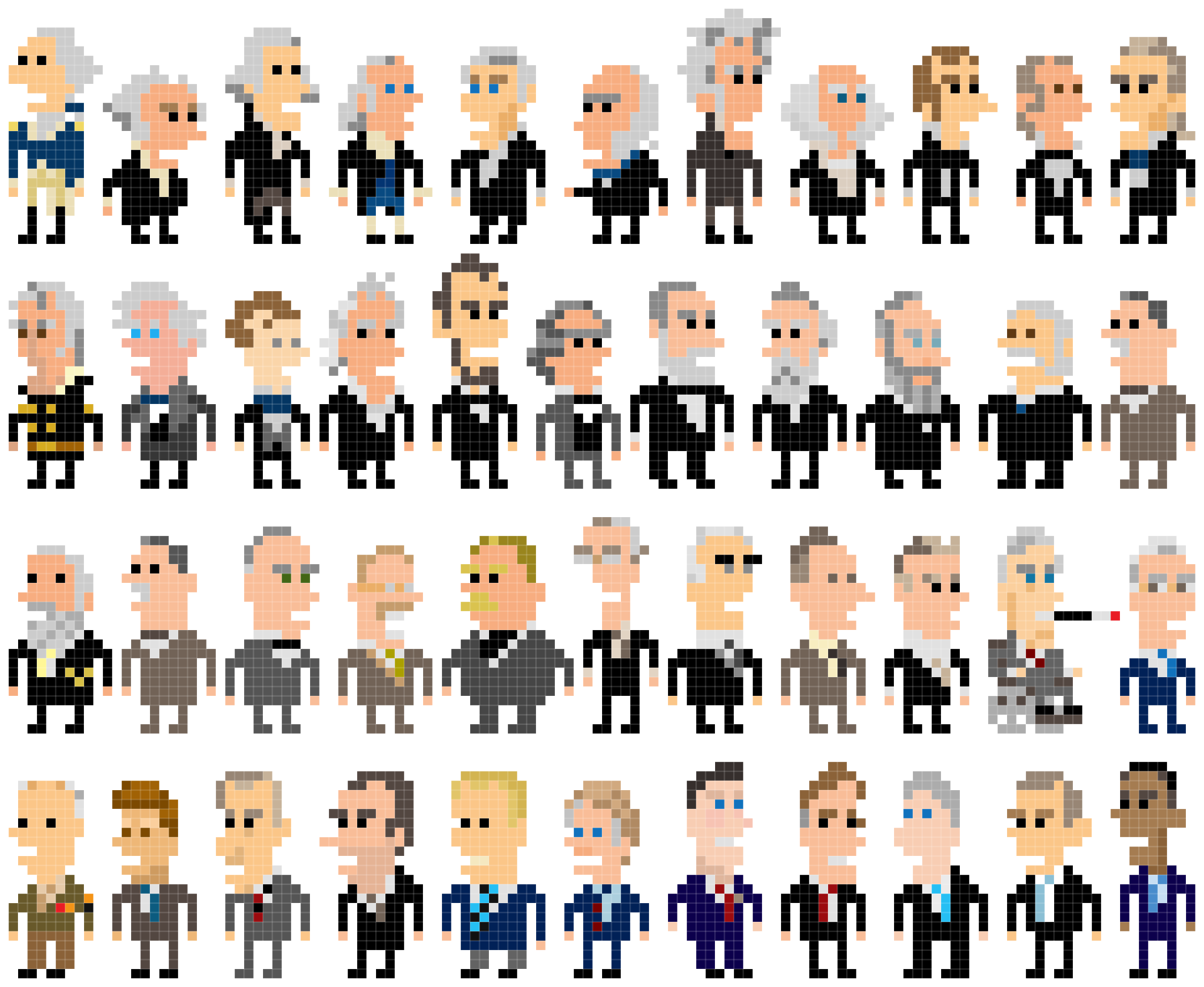The United States Presidents have played a pivotal role in shaping the nation’s history, policies, and global standing. From the founding fathers to contemporary leaders, each president has left an indelible mark on American society. In this article, we will delve into the significant contributions, challenges, and historical contexts surrounding these influential figures.
As we explore the complexities of each presidency, we will also highlight their unique leadership styles, key policies, and the socio-political climates that defined their terms in office. Understanding the legacy of United States Presidents is crucial for comprehending the evolution of American democracy and governance.
This article aims to provide an in-depth analysis of the United States Presidents, offering valuable insights for history enthusiasts, students, and anyone interested in the political landscape of the United States. Join us as we embark on this enlightening journey through American history.
Table of Contents
- Biography of United States Presidents
- The Early Presidents
- 20th Century Presidents
- Modern Era Presidents
- Significant Policies and Legislation
- Challenges Faced by Presidents
- The Legacy of United States Presidents
- Conclusion
Biography of United States Presidents
The history of the United States is intricately linked to the biographies of its presidents. Each president's personal background, education, and experiences have influenced their leadership style and decision-making process.
Data and Personal Information
| Name | Term in Office | Political Party | Notable Achievements |
|---|---|---|---|
| George Washington | 1789-1797 | None | First President, established precedents |
| Abraham Lincoln | 1861-1865 | Republican | Emancipation Proclamation, preserved the Union |
| Franklin D. Roosevelt | 1933-1945 | Democratic | New Deal programs, leadership during WWII |
| Barack Obama | 2009-2017 | Democratic | Affordable Care Act, diplomatic relations with Cuba |
The Early Presidents
The early presidents, including George Washington, Thomas Jefferson, and James Madison, set the foundation for the future of the United States. Washington's leadership established crucial precedents, while Jefferson's Louisiana Purchase expanded the nation significantly.
Key Contributions of Early Presidents
- George Washington: Established the cabinet system and promoted neutrality in foreign affairs.
- Thomas Jefferson: Advocated for individual liberties and the separation of church and state.
- James Madison: Known as the "Father of the Constitution," he championed the Bill of Rights.
20th Century Presidents
The 20th century brought about significant changes in American society, and presidents like Theodore Roosevelt, Franklin D. Roosevelt, and John F. Kennedy faced numerous challenges, from economic depression to civil rights movements.
Theodore Roosevelt's Progressive Reforms
Theodore Roosevelt was a champion of progressive reforms, advocating for labor rights and anti-trust legislation. His leadership during the Progressive Era laid the groundwork for modern American politics.
Modern Era Presidents
In recent decades, presidents such as Bill Clinton, George W. Bush, Barack Obama, and Donald Trump have navigated complex international relationships and domestic issues, including economic crises and healthcare reform.
Impact of Social Media on Modern Presidents
The rise of social media has transformed presidential communication strategies. Presidents now engage with the public directly, influencing public opinion and policy discussions.
Significant Policies and Legislation
Throughout history, United States Presidents have enacted significant policies that have shaped the nation. From the New Deal to the Affordable Care Act, these policies reflect the changing needs and values of American society.
Notable Legislation
- Social Security Act (1935) - Franklin D. Roosevelt
- Civil Rights Act (1964) - Lyndon B. Johnson
- Affordable Care Act (2010) - Barack Obama
Challenges Faced by Presidents
Presidents have faced numerous challenges during their terms, including economic downturns, wars, and social unrest. Understanding these challenges helps contextualize their decisions and policies.
Historical Challenges and Responses
- The Great Depression: Roosevelt's New Deal policies aimed to revive the economy.
- The Vietnam War: Johnson faced significant opposition and protests during his presidency.
- 9/11 Attacks: Bush's response included the War on Terror and the establishment of the Department of Homeland Security.
The Legacy of United States Presidents
The legacy of each United States President is evaluated based on their achievements, failures, and the long-term effects of their policies. Historical assessments continue to evolve as new perspectives emerge.
Factors Influencing Legacy
- Economic performance during their term.
- Social and civil rights advancements.
- International relations and diplomacy.
Conclusion
In conclusion, the United States Presidents have played an integral role in shaping the nation’s history and identity. Their legacies reflect the complex interplay of leadership, policy, and societal change. As we continue to study their contributions, it is essential to engage in thoughtful discussions about the future of American governance.
We invite you to share your thoughts and insights in the comments section below. Additionally, feel free to explore other articles on our site to deepen your understanding of American history and politics.
Thank you for joining us on this journey through the legacy of United States Presidents. We hope to see you again soon!
You Might Also Like
Understanding Joel Osteen: His Life, Ministry, And ImpactExploring The Legacy Of The Bee Gees: A Musical Journey Through Time
Meadows Gets Immunity: A Comprehensive Analysis
The Amazing Spider-Man Cast: A Closer Look At The Stars Behind The Mask
Exploring The Magical World Of Luca Pixar: A Comprehensive Guide
Article Recommendations
- Mandy Rhea Age
- Rick Hoffman Wife
- Jean Pierre Angelil
- Shiloh Jolie Pitt 2024
- Ceara Coveney
- Life Below Zero Thorne Bay
- Eau Claire Public Library
- Mydesi Org
- Stephanie Lesnar
- Trinidad Valentin


